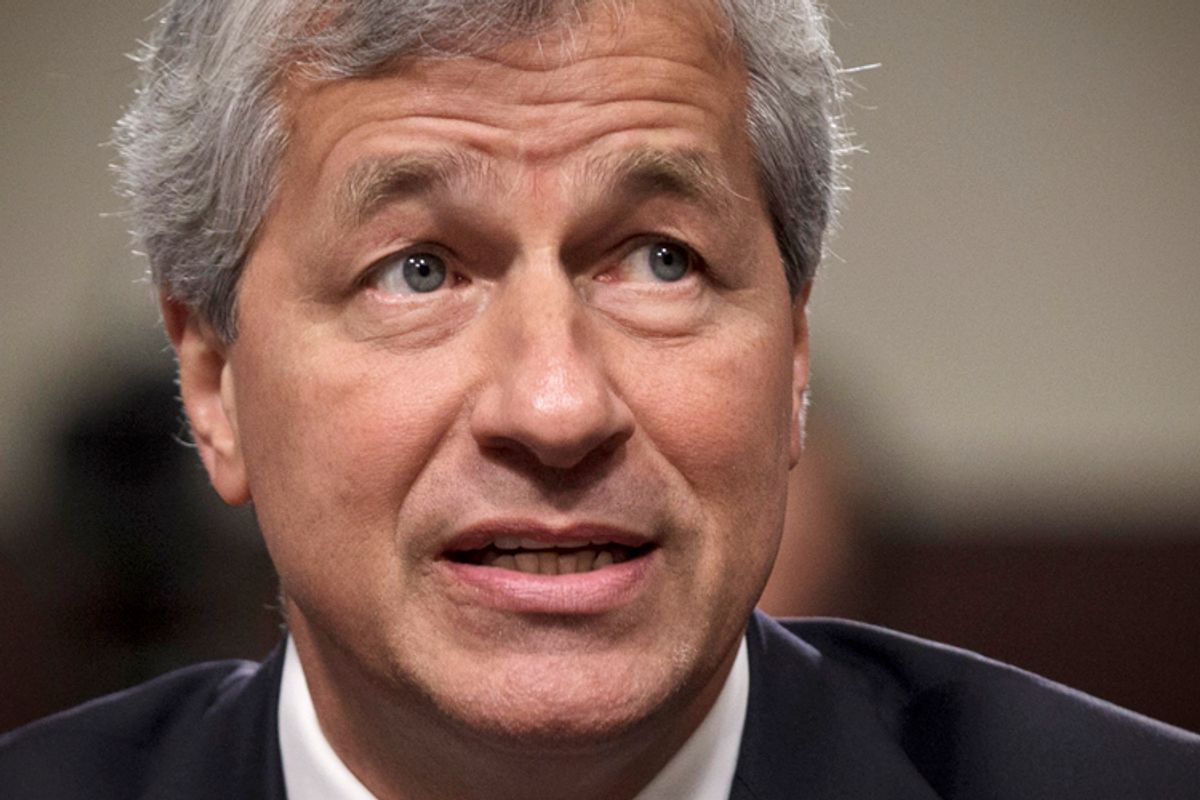The House's narrow passage of a massive spending bill that included a provision gutting a key financial regulatory reform is being cast as a major win for the financial industry. Wall Street saw the bill's passage as so crucial that JPMorgan CEO Jamie Dimon personally called members of the House yesterday to urge them to vote in favor of the bill, which funds most of the government through the end of the fiscal year.
So reports the Washington Post, which cites "a person familiar with" Dimon's effort. The bill could provide a big boon to Dimon's bank; a provision quietly inserted into the legislation without any prior debate repeals the Dodd-Frank banking reform's laws "swap pushout" rule, which bans banks from using taxpayer funds to trade highly risky financial instruments known as swaps.
Congressman Kevin Yoder, a Kansas Republican, inserted the provision into the bill, but he didn't actually write it. Yoder left that job to Citigroup, another firm that has long agitated for repeal of the swap rule.
Massachusetts Sen. Elizabeth Warren, a leader of the Democratic Party's progressive wing, blasted Yoder's policy rider, exhorting House Democrats to vote against the bill because of its inclusion. House Democratic leader Nancy Pelosi joined Warren in opposition to the bill, declaring Thursday that she was "enormously disappointed" that the Obama White House has signaled its support for the spending bill, despite reservations about the swap rule repeal. But 57 members of the House Democratic caucus joined a majority of the Republican conference in voting for the bill last night, paving the path for its passage.
Dimon, who has led JPMorgan since 2005, was long a leading Wall Street backer of the Democratic Party. He supported President Obama during his first White House run in 2008, although he later soured on the president, charging that the administration's criticism of Wall Street practices constituted "a form of discrimination," and railing against "the Democrats' anti-business behavior." By 2012, Dimon said that he was "barely" still a Democrat, although last night's vote signals that for all the populist fervor stoked by progressives like Warren, the industry doesn't want for allies in the Democratic Party.
It's unclear which members of Congress Dimon contacted as part of his vote-whipping effort.

Shares